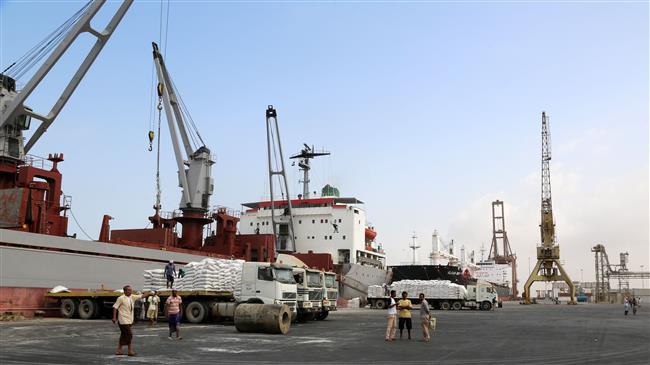
RNA - The UK-based human rights body said in a statement on its website that the militants stop the aid-laden ships to inspect their cargoes even though it is the United Nations which is mandated to do so.
They divert the ships to the Yemeni ports which are controlled by a Saudi-led coalition of invaders whom they work for, or delay them for further inspection sometimes for a month or more, the organization added.
“The times that these inspections are taking are effectively obstructing the flow of humanitarian aid and essential goods. And that is why, in our analysis, we have found that this could amount to collective punishment,” the statement quoted Lynn Maalouf, the Middle East research director at the Amnesty, as saying.
The coalition has been waging a war on the Arab world’s already most impoverished country to restore its former Saudi-allied officials. Yemen’s Health Ministry says more than 600,000 people have either been killed or injured during the three-year-old invasion.
The combination of the war and blockade has brought the country close to the edge of famine.
The Saudi-led alliance has been waging a full-on battle since June 13 to occupy the port city of al-Hudaydah, which receives the bulk of the country’s food and fuel supplies.
Yemen’s Houthi Ansarullah movement which has been defending the country against the invaders together with its allies has, however, refused to give up the port.
“We’re already talking about the worst man-made humanitarian catastrophe in the world. And we’re not just talking about Hudaydah. We’re talking about the impact on the entire Yemeni civilian population here,” Maalouf added.
‘Huge catastrophe‘
British charity Oxfam also sounded a stern warning.
“What we are forecasting and have been saying is that it will be huge catastrophe if full fighting erupts in Hudaydah city and the port becomes non-functional,” Muhsin Siddiquey, the Yemen country director for Oxfam said.
847/940